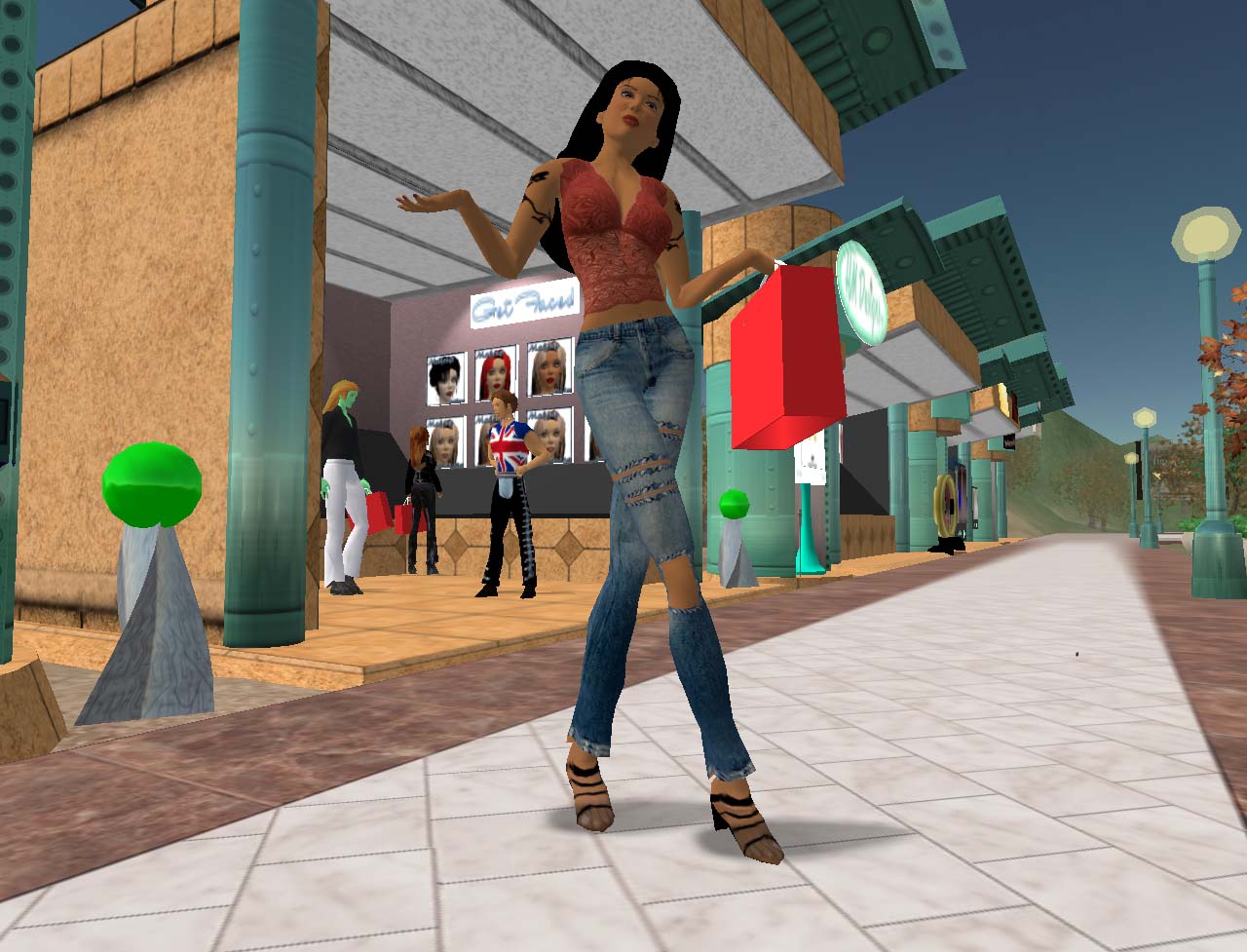When Facebook was introduced to the public in 2004, it immediately shook up the whole world and has heavily affected our lives ever since. Regardless of the ubiquity of online violence and fake news on this social platform, its temptation remains strong that we just can’t take our eyes off the screen.
In 2021, Facebook rebranded itself to Meta to establish its metaverse ambitions. However, Mark Zuckerberg’s Metaverse didn’t become as big as he initially hoped for. It has, in fact, threatened Facebook’s supremacy in the digital world.

Metaverse, a virtual world where humans can build different personas through avatars and create a digital living space, is not a novel concept. Second Life has made its first mark in this promising digital realm since 2003. Two decades later, Bondee, a Singapore-based social networking app, enters the metaverse race, immediately taking Asia by storm and topping the app store charts. The new app allows users to create their virtual “self” that can interact with others in its digital environment like real humans.
The influx of tech firms to the digital space implies the enormous potential of the metaverse, and Mark Zuckerberg is by no means a trailblazer – or at least, not the only one.
An easy escape
The tragic terrorist attack on the Twin Towers in the US on 11/09/2001 marked the beginning of the 21st century. Also, the fight against extremism is a thin disguise for a competition for resources or a power struggle between superpowers. Meanwhile, a host of problems, such as environmental disasters, poverty, corruption, and fake news, are plaguing human beings, plunging the public into pessimism and skepticism.
Humans desperately long to escape from the harsh realities. However, two common ways that most people think of are unfeasible and less than ideal. Flying to outer space is almost a one-way trip that is costly and deadly. Meanwhile, practicing mindfulness to tap into the mind can only serve as a temporary painkiller. Therefore, they opt for the still relatively uncharted digital space as a promised land to find solace.
Launched in 2003, Second Life, as the name suggests, satisfies that desire with the opportunity to lead a second life or a different life as one wishes. This game has no traditional gameplay mechanics, such as competition and tasks to level up, and the only goal set for users is to build their dream world from scratch. Users are engaged in some thought-provoking questions: What is the true meaning of life if excluding what rules in the physical world, such as money, fame, and wealth? What does this new digital society look like if inequality has no place there?
Residents of Second Life, as its users are called, can establish a completely different identity, choosing a new name, body, and appearance, and even changing sex and race. The platform promises that if your reality does not meet your expectations, you can get the life you want in this virtual world. Remarkably, those with physical and mental disabilities can find respite in this digital space as their virtual identity allows them to live, move and interact with others like normal people.

Second Life’s users can also build houses, restaurants, and entertainment centers. They can buy and sell virtual land and other digital assets or become celebrities. Many businesses have taken note of this game since its early days as it shows revenue otential.
For example, IBM plans to set up a virtual store in Second Life, allowing customers to experiment with replicas of real-life items before heading to physical stores to buy them. Meanwhile, BBC has purchased a virtual island in the game to build its headquarters.
Bondee, the next-gen metaverse app, is the recent talk of the (digital) town. Developed by Singapore-based tech firm Metadream, Bondee has fascinated Asian residents with better 3D graphics and greater customization. This app is designed to be minimalist to avoid overwhelming its users.

The surging popularity of Bondee signals the apparent end of traditional 2D social networking platforms, just like what Facebook did to Yahoo 360! and other online forums in the 2000s.
Disillusionment
The real world disappoints us in one way or the other. We mistakenly believe the digital space is the lifesaver and thus rush there to find comfort and freedom. However, the reality hits differently.
The “promising” virtual worlds seem to be problem-riddled and only worsen our disappointment. A female user alleged harassment on Metaverse during its earliest days. Bondee was hit with allegations of collecting users’ credit card information less than a week after its launch to the public. Meanwhile, Second Life recently announced its plan to charge taxes on transactions made on this platform, passing on the tax burden to its users.
The digital space doesn’t welcome users for free lunch. According to Saskia Sassen, a professor at the University of Chicago, there exists public and private digital space. Second Life, Metaverse, and Bondee are all private digital spaces governed by real-life tech giants.

Large tech companies strategically offer free digital spaces as alternatives to the suffocating reality during the early stages. You can look to online platforms to assert yourself, raise your voice, and even confidently share what you are afraid to say in the real world. However, users’ freedom is not what those tech firms prioritize. Their ultimate focus is to earn profits from user-created content that comes with the freedom they provide.
Second Life has seen and seized the opportunity to expand its market in a world dominated by the market economy. More active users mean more transactions, which can lead to profits. Also, there is no free money supply on this virtual platform. Second Life’s residents must convert real money into its currency, the Linden dollar, to purchase virtual in-game assets. If you live in poverty in the real world, your Second Life will be pretty same. In other words, your character on Second Life will reflect your reality.
Facebook, the original 2D version of Metaverse, is known for its ability to learn users’ behavior and interaction with different types of content through mouse clicks and deliver personalized ads. With the integration of virtual reality technology, Metaverse will collect personal data based on users’ body movements rather than arbitrary mouse clicks.
Meanwhile, Bondee is a new platform that has yet to take many development steps. The company denied accusations of collecting users’ payment information. However, common sense says that Bondee must derive substantial benefits from users in one way or the other. Otherwise, it won’t enter the social networking business.
In short, a happy digital life does not equal a better life in the physical world. Real-life burdens, such as food and money, constantly confront us, while social media and virtual worlds only serve as temporary relief. But they, too, bring a whole different level of dilemmas. For now, we remain unable to escape from this disappointing reality.
